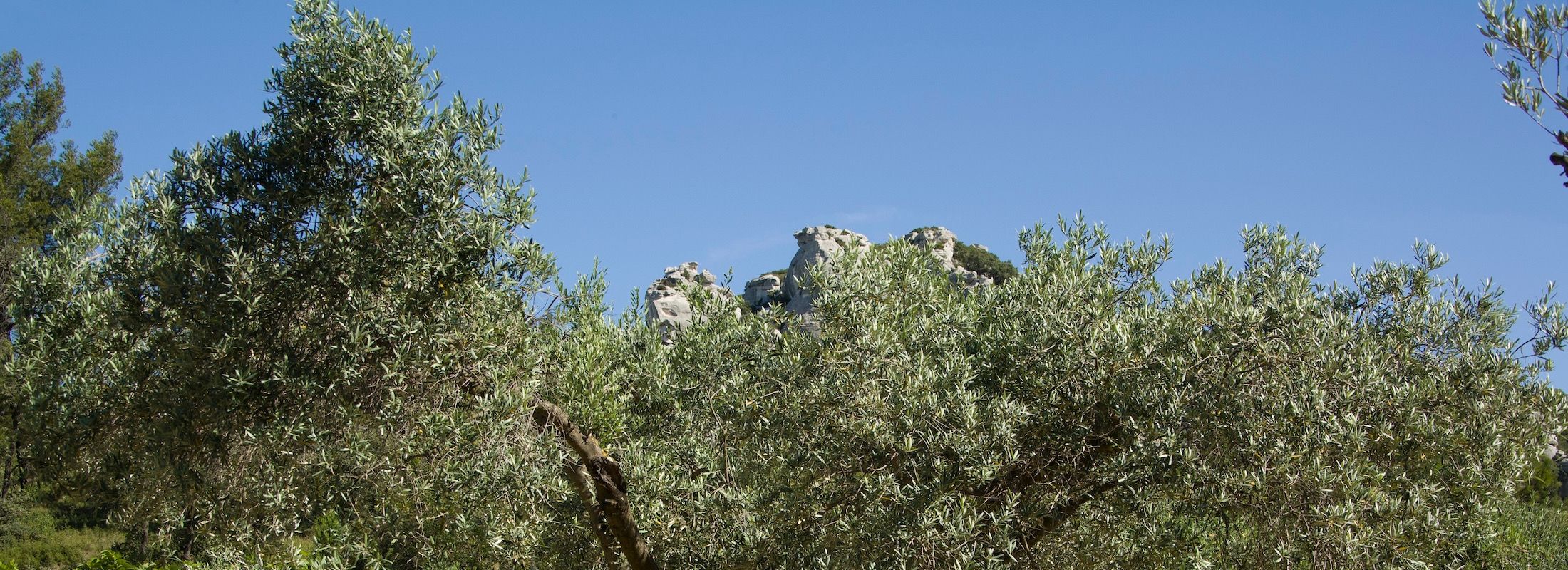Benvengudo Hotel Reviews the Olive Oils of Provence
The rich and fertile hills surrounding Benvengudo Hotel are home to some of the finest olive groves in Provence. Comparable to a fine wine, the olives grown here have a bouquet, a colour, a flavour and elegance that captures the essence of the surrounding Vallée des Baux-de-Provence. Benvengudo’s own olives are grown at the hotel and then taken to the local mill where they are processed into olive oil; the same oil is used in the Benvengudo Hotel restaurant.
The AOC Labels
What is perhaps most unique about the olive grown in Les Baux is that the Provence boasts three separate AOC (appellation d’origine controlée) labels. The appellation d’origine contrôlée, which translates as “controlled designation of origin”, is the French certification granted to certain French geographical indications for wines, cheeses, butters, and other agricultural products.
Eight regions in France – mainly in Provence – enjoy an AOC status, which was awarded by the European Union and guarantees an oil’s geographical origins and strict conditions of production. These eight regions are the Vallée des Baux de Provence, Aix en Provence, Haute Provence, Provence, Nice, Nîmes, Nyons and Corsica.
The label on a bottle of Provençal olive oil is also likely to state the name of the château or domaine, but not the year. Put simply, olive oil doesn’t improve with age as wine does and should be consumed quickly once the bottle has been opened. Furthermore, as a quality indicator, the Vallee des Baux olive oil has a very low free acidity of 0.05 % (to get the “extra-virgin olive oil” label the maximum is 0.8%)
The three “Vallée des Baux-de-Provence” AOC labels for black crushed olives, pricked olives and olive oil were awarded on August 31, 1997, and demonstrate the pure, unique nature of the fruits from the olive-trees of the Alpine foothills.
The Olive Oil of Les Baux-de-Provence
Provence olives are unique because of the fruity flavour of the oils they produce. The olive cultivars of Aglandau, Salonenque, Grossane and Verdale Bouches du Rhone produce a typically fruity green oil in which there are aromas of fresh hay and cut grass, apple, fresh hazelnut, kernel, raw artichoke and tomato leaf. The varying proportions of these varieties and the miller jiffy allow a range of flavours in the same tone. In comparison the oils of the Vallée des Baux de Provence have a moderate bitterness and pungency.
Those varieties of olive in the black fruity typicality give an oil that is characterized by aromas of candied olives, black olives, cocoa, truffle, mushroom, cooked artichokes and sourdough bread and produce a sweet flavour free of bitterness and with little or no pungency.
Fruity green or black oils are obtained with the same olives. The difference is due to the time of maturation of the olives between collection and crushing. A fruity green oil is obtained with olives picked in the morning and processed within 24 hours. A black fruity oil is obtained by maturing the olives 4 or 5 days between collection and crushing.
An experienced producer will be able to obtain the optimum quality of oil in both varieties. Vallée des Baux-de-Provence is one of only two French appellation to have two fruity olive oils protected by AOC guidelines. Located less than 4km down from Benvengudo on Les Route de Baux is Moulin de la Coquille, an olive grower and oil producer that works with the Aglandau, Salonenque, Grossane and Verdale olives to produce their rich extra virgin oil characterized by a fruity green flavour.
Benvengudo Hotel is a 4 star luxury boutique hotel located in Les Baux-de-Provence. Set in an authentic Provencal country house, its idyllic location offers a perfect base from which to explore this remarkable region in the South of France.
Thanks for reading
